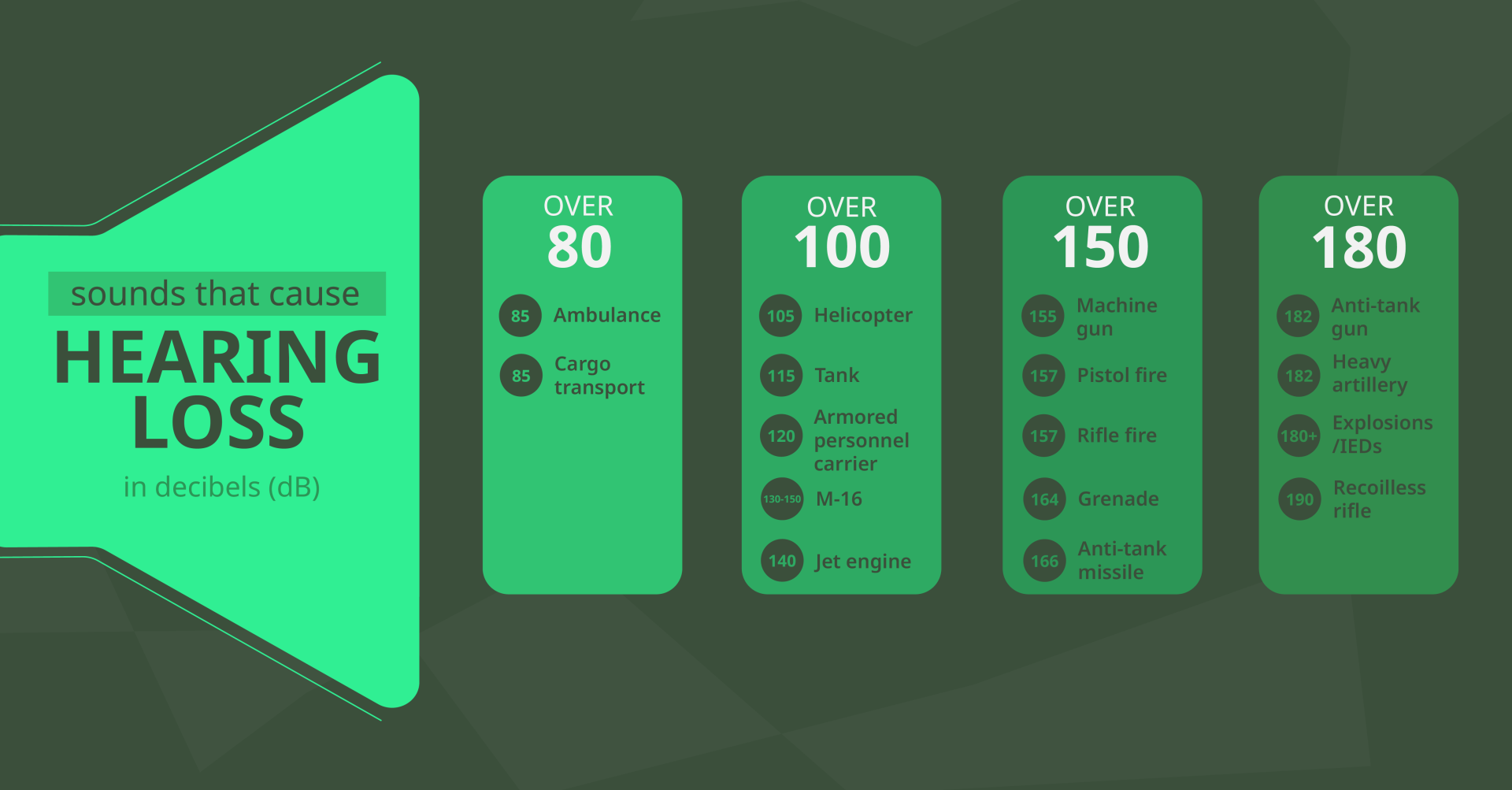
Hearing loss and tinnitus are the most common disabilities among veterans, and they are more prevalent in those who have served in the military than the general public. When you serve in the military, you are given ear protection to wear, but that doesn’t necessarily mean you won’t be susceptible to hearing loss or a ringing in your ears, called tinnitus.
Good hearing is important for those serving in the military; soldiers need to be able to communicate with each other to ensure safety and effectiveness. They have to hear acoustic cues and communication signals. If they’re unable to hear, they are unable to choose the right actions. However, soldiers cannot just walk away from the noise they’re regularly exposed to.
It’s important to know the causes of hearing loss in the military, the types of hearing loss, what you can do for prevention and when to seek treatment from an ear specialist.
Causes of hearing loss in the military
Any extended exposure to sound levels above 85 dB can damage your hearing. Hearing loss can also occur after a single noise blast of 105 dB. This level of noise is common in the military, and hearing loss can occur over time or all of a sudden. Exposure to these noise levels damage hair cells in the inner ear, and once they’re damaged they cannot repair themselves.
Below are the decibel levels of specific sounds that cause hearing loss in the military.

Types of hearing loss in the military
Conductive and sensorineural hearing loss are the two main types of hearing loss we see in people who have served. Conductive hearing loss is when damage occurs in the middle ear and eardrum. This kind of hearing loss is often reversible. Sensorineural hearing loss is permanent damage to the inner and auditory nerve; it’s the most common type and hearing aids can help.
Noise-induced hearing loss can show up suddenly or develop over time, as can tinnitus. Veterans may also experience a ringing or buzzing sound in their ears, which only they can hear. This can cause difficulty in sleeping and concentrating. They can also suffer from auditory processing disorder, making it difficult for them to understand speech, even though they score normally on hearing tests. This can happen after being exposed to a large blast.
Symptoms and signs of hearing loss include: the ringing in the ears associated with tinnitus, difficulty understanding conversations in loud environments, a hard time talking on the phone, having to ask others to speak up or repeat themselves, hypersensitivity to certain sounds, problems hearing high-pitched sounds like birds chirping, a hard time distinguishing between different sounds and consistently turning up the volume.
Preventing hearing loss in the military
Wearing proper hearing protection while in active duty can reduce the risk of hearing loss. Hearing protection includes foam earplugs, noise muffs, tactical communication and protective system (TCAPS) equipment, tactical earplugs and triple and quad-flange earplugs. Veterans should take breaks when in noisy places or doing noisy activities such as attending concerts or mowing the lawn. Getting regular hearing checks to ensure your condition doesn’t get worse is a good idea. Early treatment is best.
Seek treatment from an ear specialist
An ear specialist can help you manage your tinnitus, find out the degree of your hearing loss, determine the type of hearing loss you have and come up with a treatment plan catered to your lifestyle. If you or a loved one are experiencing symptoms of hearing loss due to serving in the military, contact us today. We’re a veteran owned and operated, and we would love to help!






Comments